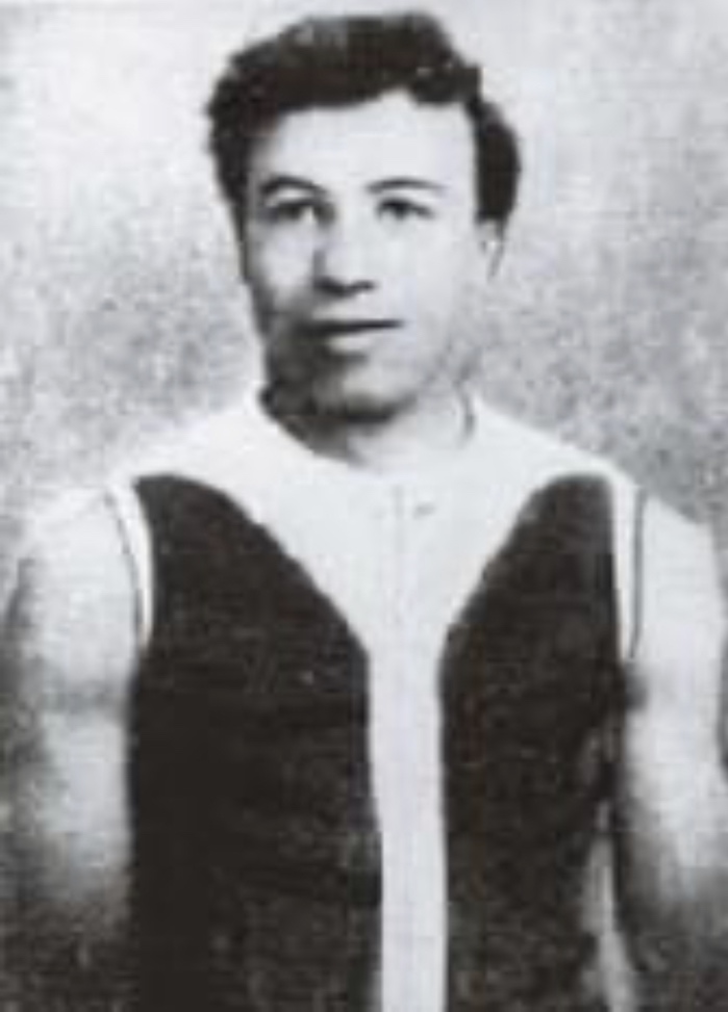Diversity & Inclusion
The legacy of Joe Johnson - Celebrating our Indigenous Elders

As Australia marks NAIDOC week and embraces this year's theme of "For our Elders,” I am honoured to share the incredible legacy of my great-grandfather Joe Johnson who has contributed immensely to Australia's cultural, social and sporting landscape.
Joe Johnson was Australia's first professional First Nations footballer in the AFL (then VFL). He blazed a trail that included playing in two grand finals for Fitzroy in 1904 and 1905, playing coach for Brunswick 1907-1911 and playing coach for Northcote from 1912-1914. With unwavering courage and unmatched skill, he set the standard for generations to come.

Joe Johnson, first First Nations professional footballer in the AFL
My great-grandfather's achievements on the football field continue to inspire both Indigenous and non-Indigenous Australians. It warms my heart to witness the Fitzroy Junior Football Club honouring him every year with a medal in his name for "Endurance, Tenacity, Courage, Loyalty and Pride."
But despite his significant achievements within the VFL arena, Joe Johnson's contributions have not been officially recognised by the AFL of today. This oversight underscores the importance of acknowledging and honouring the history of First Nations achievements.
Beyond his remarkable playing career, my great-grandfather's influence extended into the community. He served his country in Gallipoli and dedicated himself to coaching and mentoring young people using community engagement to promote inclusion, equality and social justice. His commitment serves as a reminder of why it is vital to promote diversity and inclusivity in every corner of our country.
Joe Johnson’s impacts still reverberates within our family lines with four generations of VFL/AFL footballers, including my father and two brothers, each following in his footsteps.

The Cummings brothers and father.
I am privileged to carry on his legacy and have recently been given the great honour of being asked by ANZ’s Group Executive Technology and Group Services Gerard Florian to be part of the Reconciliation Program Steering Committee in addition to my role as Commercial Technology Domain Lead. This opportunity allows me to contribute to the ongoing progress of reconciliation and the pursuit of unity.
My passion for this industry, which often lacks diversity, is fuelled by my great-grandfather's unwavering commitment and strong work ethic. My father, having grown up with his grandfather as a role model, instilled in our family the importance of determination, persistence and honesty. These values continue to guide me and remind me to take pride in our heritage.
Through my work, I strive to promote greater awareness of diversity, unity and inclusivity for all technology industry players. Actively mentoring women in technology, working with the Ada Network on award winning programs like "Return to Work" and actively identifying ways to better support women and First Nations individuals in technology.
Recent statistics on the under-representation and gender disparities faced by women in the technology sector hold significant relevance for promoting diversity and inclusivity. According to the Australian Bureau of Statistics (ABS), women make up just 29 per cent of the total tech workforce, despite comprising 50 per cent of the working population. Furthermore, women are significantly underrepresented in higher-level positions, with only about 32.5 per cent of key management positions.
When examining the participation of Aboriginal people, including women, in the technology industry, the statistics highlight an even greater discrepancy. As of 2020, Aboriginal and Torres Strait Islander people accounted for only about 1.4 per cent of the tech workforce, the ABS reports. This statistic reinforces the urgent need for more inclusive practices, targeted opportunities and support to increase representation and diversity within the industry.
Acknowledging the barriers faced by First Nations people in pursuing technology careers reveals the larger challenges of limited access to education and resources, cultural biases and systemic inequalities. These obstacles must be addressed to provide equal opportunities and a more supportive environment for Aboriginal individuals in the technology sector.
Efforts are being made to bridge these gaps and promote greater inclusion. Programs and initiatives that provide training, mentorship and support specifically targeted towards First Nations people in technology are being implemented to increase representation and foster a more diverse workforce.
However, there is still much work to be done to ensure equal opportunities, recognition and representation of Aboriginal people in the technology industry.
By recognising and addressing these obstacles, advocating for inclusive policies and fostering an environment that celebrates and values diverse perspectives, progress can be made toward a more equitable and inclusive technology landscape for First Nations people.
As we conclude this NAIDOC week, it is crucial to celebrate and recognise the significant contributions of First Nations Australians, both past and present, within all sectors, from sports to technology.
These people have left an indelible impact on our cultural, social and economic landscape. Let us continue to honour people like my great-grandfather with his remarkable story and pay homage to the many incredible legends who sacrificed everything to shape the world we live in today.
It is vital for all people in Australia to celebrate our communities shared stories, integrating them into the rich cultural mosaic that defines our country. Together, we must strive to promote inclusivity and unity by eradicating inequalities and improving opportunities for representation and recognition.
As we embrace the spirit of NAIDOC Week and delve into Australia's shared history, let us move forward with harmony, tolerance and mutual respect. It is our mission to forge a technologically advanced, innovative economy driven by inclusivity and accessible opportunities for every individual.
Kylie Cummings is Domain Lead, Commercial Division at ANZ
RELATED ARTICLES:
Inside ANZ
From trainee to Team Leader
Inside ANZ
